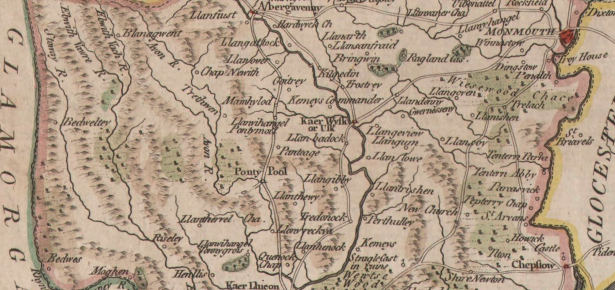
Arguably, Daniel Defoe’s Tour thro’ the Whole Island of Great Britain (1724-26) is the single most comprehensive, detailed and insightful guide we have to the state of the nation as it moved into the modern era. Does that claim look over the top? If so, let’s see how the argument runs.
For starters, we shouldn’t find this idea much of a surprise. A long succession of writers across the historical board have lauded the work, and raided its pages for telling evidence. Their concerns lie in various sub-disciplines – political, economic, military, social, cultural, urban, rural, demographic, geographic, transport, electoral, criminal, architectural, antiquarian and topographic. The list could easily go on, since the Tour is adduced by historians of the family, old age, women, education, religion, shopping, weather, landscape, cartography, leisure, travel and tourism, infectious disease, gambling, the Navy, Civil War battlefields, dialect, and industrial archeology. The writers belong to different generations: they include exponents of traditional and radical approaches; popular and scholarly authors; and liberals and Marxists.
Second, Defoe had unique qualifications for the job. His role was to celebrate the new Britain that developed after the Financial Revolution and would now take its first baby steps towards the Industrial Revolution. To this task he brought to bear his wide experience of the commercial world, not always successfully managed. Starting out in the London hosiery trade, he invested in all sorts of activities – like owning and insuring ships, importing tobacco from Maryland, property development, peddling civet cats for use in perfume manufacture, and operating diving bells to salvage wrecks. Once he set up a firm along the Thames estuary to manufacture bricks, but it collapsed owing to his conviction for a rash political satire, The Shortest Way with the Dissenters. While a government agent in Edinburgh at the time of the Union with Scotland, he explored fresh areas of business, making linen tablecloths, importing wine, and selling horses.
Third, Defoe witnessed at first hand major events of the day – the Great Plague, the Fire of London, the Dutch Wars, the Monmouth Rebellion, the Revolution of 1688, the Union, the Hanoverian accession, the Jacobite rising of 1715, and the South Sea Bubble. He was on the spot to assess the impact of the Bloody Assizes, the battle of Blenheim, the trial of Dr Sacheverell, the Treaty of Utrecht, the rebuilding of St Paul’s, the Atterbury plot, and the rise of Walpole. This new study demonstrates how several of these episodes cast their shadow over the Tour. His travels round the country as a political spy enhanced his already extensive knowledge of many corners of the nation. Crisscrossing the major and minor routes, he was perfectly placed to deliver the fullest account of how turnpike roads were opening up trade and communications. He had stood in the pillory, and seen the inside of Newgate prison and the debtors’ gaol. After the battle of Sedgemoor, he had needed a royal pardon, and sometimes he had to go into hiding to dodge the law or escape creditors.
Lastly, he was a great writer. Of course, this emerges in novels such as Robinson Crusoe and Moll Flanders, but equally so in books ranging from a brilliant poem, The True Born Englishman, to the prescient Essay upon Projects. His widely read works included manuals of domestic conduct, ghost stories and a history of the devil. The Review (1704-13) is the most important periodical commenting on national life as English journalism took its first leap forward. These practised skills irradiate the pages of the Tour, as this new book reveals in exploring the themes, structure, and rhetorical devices that went to construct Defoe’s epic treatment of the new British state.
Latest Comments
Have your say!